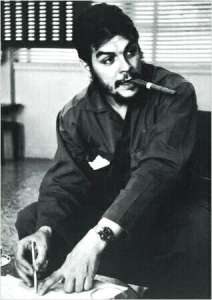The Disorder of Things is delighted to host a symposium on Cynthia Weber’s new book Queer International Relations: Sovereignty, Sexuality and the Will to Knowledge. We kick off the symposium with an inaugural post from Cynthia, followed by replies over the next few days from Joan Cocks, Antke Engel, Cyril Ghosh and Dianne Otto. We will conclude the symposium with a reply from Cynthia. 
Cynthia Weber is Professor of International Relations at the University of Sussex. She has written extensively on sovereignty, intervention, and US foreign policy, as well as on feminist, gendered and sexualized understandings and organizations of international relations.
UPDATE (22/11/2016): a response from Joan Cocks.
UPDATE (23/11/2016): a response from Antke Engel.
UPDATE (24/11/2016): a response from Cyril Ghosh.
UPDATE (25/11/2016): a response from Dianne Otto.
UPDATE (27/11/2016): a response from Cynthia Weber.
What is ‘homosexuality’? Who is ‘the homosexual’? Queer Studies scholars have long engaged with these questions, as well as with a vast array of additional questions about gender variant, gender non-conforming and gender expanding people. They have done so not to answer these questions but to trace how what Michel Foucault calls the will to knowledge about ‘homosexuality’ and ‘the homosexual’ drives various hegemonic discourses of normalization. By focusing on, for example, techniques of medicalization, psychologization, and (self)disciplinization, Queer Studies scholars demonstrate how ‘normal’ and ‘perverse’ subjectivities are always produced as/in relation to complex understandings of sexes, genders and sexualities, which they read intersectionally through (amongst other things) race, class and ability. What Queer Studies scholars less often do is theorize how the will to knowledge about sexualities is a specifically sovereign will that makes possible and presupposes specifically sexualized sovereign subjectivities (although see, for example, Berlant’s work on sovereignty).
International Relations (IR) scholars, in contrast, regard sovereignty as among their core concerns. This leads them to pose an alternative set of questions in their research, including: What is ‘sovereignty’?; Who is (the always presumptively male, masculinely-engendered) ‘sovereign man’?; and What arrangements of national and international politics does ‘sovereign man’ authorize? Foucauldian and other social constructivist and poststructuralist IR scholars ask these questions not to answer them but to trace how the will to knowledge about ‘sovereignty’ and ‘sovereign man’ drive various hegemonic discourses of normalization. By focusing on, for example, the social construction of nation-states as sovereign, justifications for intervention in the name of sovereignty, and sovereignly-authorized international economic distributions of wealth, these IR scholars demonstrate how ‘normal’ and ‘perverse’ international subjectivities and international orders are always produced as/in relation to complex understandings of sovereignty. What IR scholars less often do is theorize how the will to knowledge about sovereignty is a specifically sexualized will that makes possible and presupposes specifically sexualized sovereign subjectivities (although see Peterson’s work).

